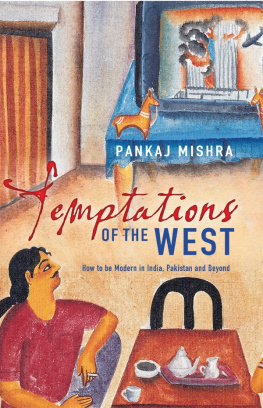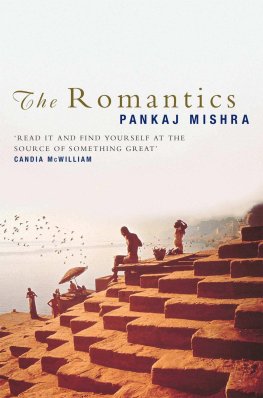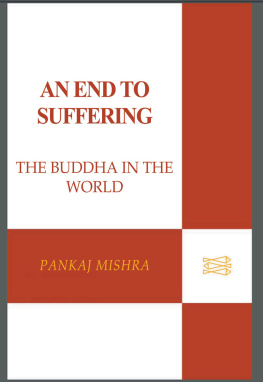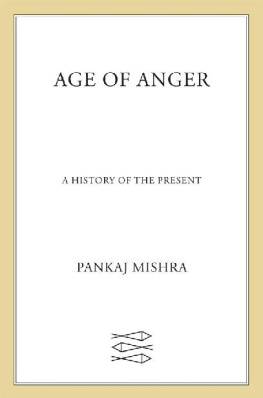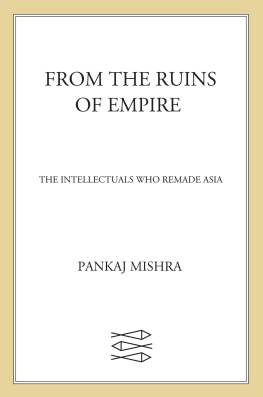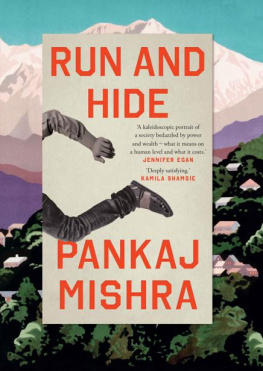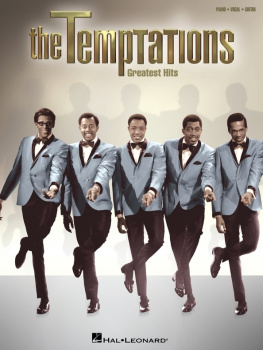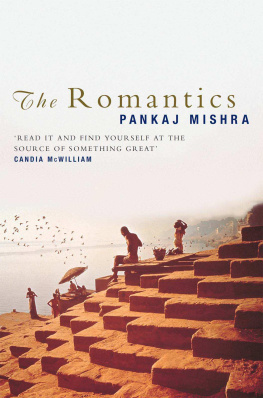Pankaj Mishra - Temptations Of The West
Here you can read online Pankaj Mishra - Temptations Of The West full text of the book (entire story) in english for free. Download pdf and epub, get meaning, cover and reviews about this ebook. year: 2006, publisher: Pan Books, genre: Detective and thriller. Description of the work, (preface) as well as reviews are available. Best literature library LitArk.com created for fans of good reading and offers a wide selection of genres:
Romance novel
Science fiction
Adventure
Detective
Science
History
Home and family
Prose
Art
Politics
Computer
Non-fiction
Religion
Business
Children
Humor
Choose a favorite category and find really read worthwhile books. Enjoy immersion in the world of imagination, feel the emotions of the characters or learn something new for yourself, make an fascinating discovery.
- Book:Temptations Of The West
- Author:
- Publisher:Pan Books
- Genre:
- Year:2006
- Rating:3 / 5
- Favourites:Add to favourites
- Your mark:
- 60
- 1
- 2
- 3
- 4
- 5
Temptations Of The West: summary, description and annotation
We offer to read an annotation, description, summary or preface (depends on what the author of the book "Temptations Of The West" wrote himself). If you haven't found the necessary information about the book — write in the comments, we will try to find it.
Temptations Of The West — read online for free the complete book (whole text) full work
Below is the text of the book, divided by pages. System saving the place of the last page read, allows you to conveniently read the book "Temptations Of The West" online for free, without having to search again every time where you left off. Put a bookmark, and you can go to the page where you finished reading at any time.
Font size:
Interval:
Bookmark:
OF THE WEST
Pakistan and Beyond
PANKAJ MISHRA
PICADOR
Over the last five years I have travelled to places as far apart as Buddhist Tibet, Bollywood and Taliban-ruled Afghanistan. Temptations of the West describes these journeys in South and Central Asia, through countries that differ radically from each other in many ways but that seem to experience the same dilemma: how do people with traditions extending back several millennia modernize themselves?
Recent events have ensured that this is no longer an academic question. Western ideologies, whether of colonialism, or of communism and globalization, have confronted the countries I visited India, Pakistan, Afghanistan, Nepal and Tibet with the same challenge: modernize or perish. But the wrenching process of remaking life and society in all their aspects (social, economic, existential) frequently collapses in violence, affecting not just South Asia, but also, as the horrific events of 9/11 showed, even the apparently remote and self-contained worlds of the West.
Needless to say, the societies I travelled through are too internally diverse to be summed up by broad generalizations of the kind preferred by policymakers and op-ed columnists. These interconnected narratives do not presume to offer solutions to their great problems, or dwell abstractly on democracy, religion, and terrorism. Rather, they seek to make the reader enter actual experiences: of individuals Hindus, Muslims, Buddhists trying to find a way in the modern world and of the traveller, as, confronted with a bewildering complexity, he moves from ignorance and prejudice to a measure of selfawareness and knowledge.
I SPENT FOUR MONTHS in Benares in the winter of 1988. I was twenty years old, with no clear idea of my future, or indeed much of anything else. After three idle, bookish years at a provincial university in a decaying old provincial town, I had developed an aversion to the world of careers and jobs which, having no money, I was destined to join. In Benares, the holiest city of the Hindus, where people come either ritually to dissolve their accumulated sins in the Ganges, or simply to die and achieve liberation from the cycle of rebirths in Benares, with a tiny allowance, I sought nothing more than a continuation of the life I had led as an undergraduate.
I lived in the old quarter, in a half-derelict house owned by a Brahmin musician: a tiny, frail, courteous old man. Panditji had long ago cut himself off from the larger world, and lay sunk all day long in an opium-induced daze, from which he roused himself punctually at six in the evening to give sitar lessons to German and American students. It was how he maintained his expensive habit, and also staved off penury. His estranged, asthmatic wife lived on the floor above his she claimed to have not gone downstairs for fifteen years and spent most of her time in a windowless kitchen full of smoke from the dung-paved hearth, conversing in a low voice with her faithful family retainer of over fifty years. The retainer, a small reticent man in pleated khaki shorts, hinted, in that gloomy setting, at better days in the past; even a kind of feudal grandeur.
The house where I lived and the melancholy presence of Panditji and his wife were part of the world of old Benares that was still intact in the late 1980s, and of which the chess games in the alleys, the all-night concerts in temples, the dancing girls at elaborately formal weddings, the gently decadent pleasures of betel leaves and opium, formed an essential component. In less than two years, most of this solid-seeming world was to vanish into thin air. The old city was to be scarred by a rash of fast-food outlets, videogame parlours, and boutiques, the most garish symbols of the entrepreneurial energies unleashed by the liberalization of the Indian economy, which would transform Benares in the way they had already transformed other sleepy small towns across India.
But I didnt know this then, and I did not listen too closely when Panditjis wife reminisced about the Benares she had known as a young woman; when she told me about the time her husband came to her family home as a starving student; or when she described the honours bestowed on her father by the Maharajah of Benares. I was even less attentive when she complained about her son and his wife; more particularly the latter, who, though Brahmin, had in her opinion the greedy, grasping ways of the merchant castes.
I didnt pay much attention to the lives around me. I was especially indifferent to the wide-eyed Europeans drifting about on the old ghats, each attached to an ashsmeared Guru. I was deep in my own world, and, though I squirmed at the word and the kind of abject dependence it suggested, I had found my own Guru, long dead but to me more real than anyone I actually knew during that winter I spent slowly making my way through his books.
On an earlier visit to the library at Benares Hindu University, idly browsing through the stacks, I had noticed a book called The American Earthquake. I read a few pages at random, standing in a dark corridor between overloaded, dusty shelves. It seemed interesting; I made a mental note to look it up on my next trip to the library. Months passed. By then I had moved to Benares, and one day while looking for something else in the same section of the stacks, I came across the book again. This time I took it to the reading room. An hour into it, I began to look at the long list under the heading, Other books by Edmund Wilson. Later that afternoon, I went back to the shelves, where they all were; dust-laden, termite-infested, but beautifully, miraculously, present: The Shores of Light, Classics and Commercials, The Bit Between My Teeth, The Wound and the Bow, Europe Without Baedeker, A Window on Russia, A Piece of My Mind
It was miraculous because this was no ordinary library. Wilsons books werent easily accessible. I had always lived in small towns where libraries and bookshops were few and far between, and did not stock anything except a few standard texts of English literature: Austen, Dickens, Kipling, Thackeray. My semicolonial education had made me spend much of my time on minor Victorian and Edwardian writers. Some diversity was provided by writers in Hindi and the Russians, which you could buy cheaply at communist bookstores. As for the rest, I read randomly, whatever I could find, and with the furious intensity of a small-town boy to whom books are the sole means of communicating with, and understanding, the larger world.
I had realized early on that being passionate about literature wasnt enough. You had to be resourceful; you had to be perpetually on the hunt for books. And so I was: at libraries and bookshops, at other peoples houses, in letters to relatives in the West, and, most fruitfully, at the local paper recycler. There I once bought a tattered old paperback of Heinrich Manns Man of Straw, which such were the gaps in my knowledge I dutifully read and made notes about, without knowing anything about his more famous and distinguished brother. Among this disconnected reading I had certain preferences, a few strong likes and dislikes, but they did not add up to coherent standards of judgement. I knew little of the social and historical underpinnings to the books I read; I had only a fleeting sense of the artistry and skill to which certain novels owed their greatness.
I had problems, too, with those books of Edmund Wilson I had found at the library, some of which I read in part that winter, others from cover to cover. Many of them were collections of reviews of books I could not possibly read at the time, or else they referred to other books I hadnt heard of. Proust, Joyce, Hemingway, Waugh, yes; Malraux and Silone, probably; but where in India could one find John Dos Passos? Wilsons books also assumed a basic knowledge of politics and history I did not have. They were a struggle for me, and the ignorance I felt before them was a secret source of shame, but it was also a better stimulus to the effort his books demanded than mere intellectual curiosity.
Font size:
Interval:
Bookmark:
Similar books «Temptations Of The West»
Look at similar books to Temptations Of The West. We have selected literature similar in name and meaning in the hope of providing readers with more options to find new, interesting, not yet read works.
Discussion, reviews of the book Temptations Of The West and just readers' own opinions. Leave your comments, write what you think about the work, its meaning or the main characters. Specify what exactly you liked and what you didn't like, and why you think so.

